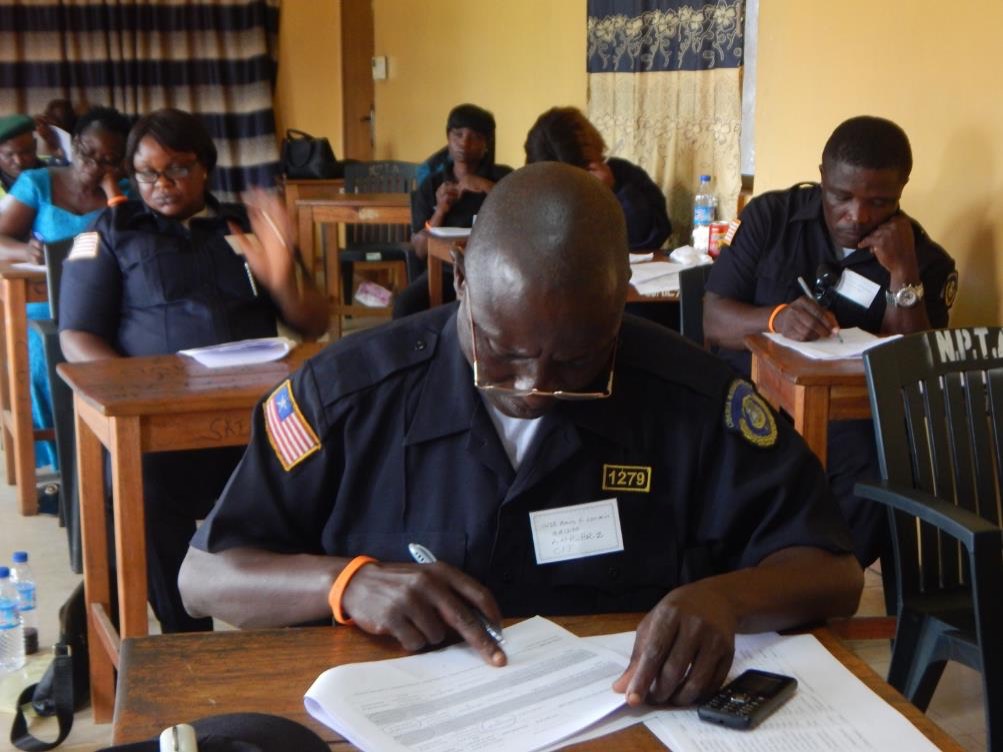MONROVIA, Montserrado – Police officers come in contact with a wide variety of individuals in their daily work. To ensure that they understand how to identify and protect individuals with mental health issues, at least 60 Liberia National Police officers are being trained over the next few months in crisis intervention.
This training is similar to another done by the Carter Center in August 2016, for law enforcement officers from the Liberia National Police, Liberia Immigration Service, and the Bureau of Correction and Rehabilitation.
Twenty officers are being drawn from various depots in Montserrado, while 10 will come from Grand Bassa, 10 from Margibi, 4 from Cape Mount, 6 from Gbarpolu, and 10 from Bomi are expected to benefit from the training.
From June 11-15, the first training involving the 20 officers from Montserrado was held at the National Police Training Academy in Paynesville.
Wilfred Gwaikolo, the deputy program manager at the Carter Center, said the overall goal is to train at least 60 officers from 30 depots across the country.
He said the training will help police officers to better understand mental health conditions and be able to identify persons with the conditions and refer them for appropriate care.

Wilfred Gwaikolo, Carter Center’s deputy program manager. Photo: Zeze Ballah
He noted that the training will also help the officers to minimize the use of unnecessary force against persons with mental illness and help to reduce stigma.
The overall goal for the Carter Center is for the police academy to permanently include the training in its curriculum for officers as a requirement for graduation.
One of the police officers partaking in the training, Alberta T. Williams, said it allowed her to understand how to refer mentally ill persons she encounters to clinicians for treatment.
Williams also indicated that she learned how to collaborate with family members in the area of crisis intervention for persons with mental disorders.
“I learned a lot about epilepsy and the stigma associated with mental illness,†she said.
She said she was impressed with each topic explored at the training and looked forward to working and helping mentally ill persons in the country.
Another officer, Michael Blama, said the training helped dispel a previously held notion that mental illnesses are linked to demonic or witchcraft activities.

Michael Blama participated in the training. Photo: Zeze Ballah
Blama said, with the knowledge acquired from the crisis intervention training, he has understood that the saliva from someone with epilepsy is not contagious.
“Following the close of the training, I am now able to identify the signs and symptoms associated with mental illnesses,†Blama said.
Participants at the training were taught to identify the signs, symptoms, causes, and stigma associated with mental illnesses.
They were also taught how to safely prevent mentally ill persons from harming others, in addition to stress management and avoiding perpetuating stigma associated with mental illnesses.
The officers also learned to apply psychological first aid to individuals with mental disorders during a crisis.
Featured photo by Zeze Ballah



